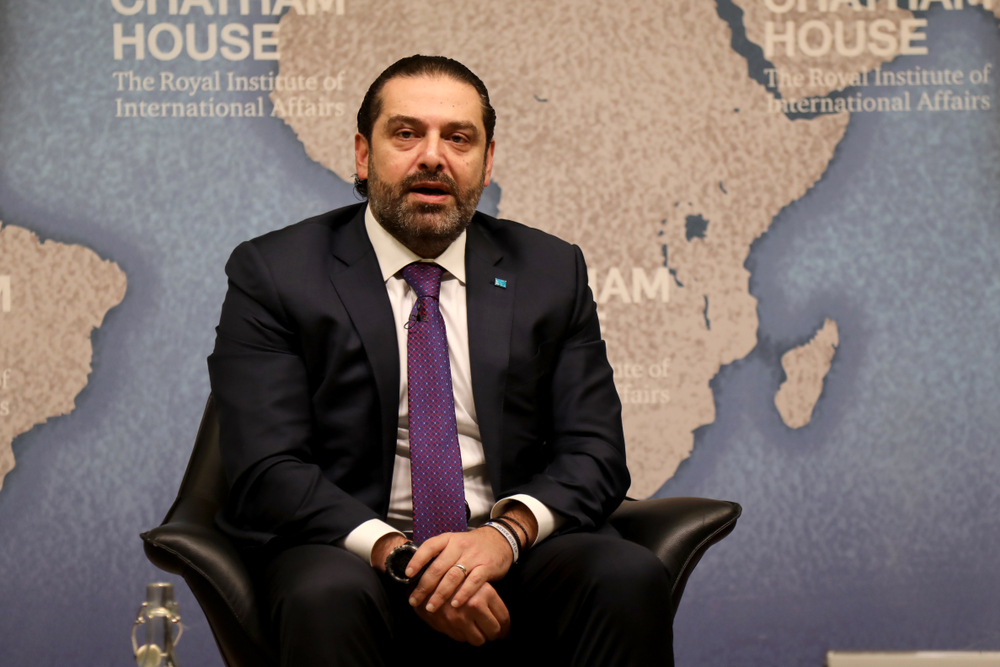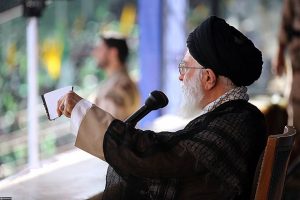By Aurélie Daher
For two weeks now, the free world has been enthusiastic about the uprising of Lebanese society against its political class. In this collective momentum calling for the departure of a clique inherited in large part from the time of the civil war (1975-1990) and the years of Syrian tutelage (1990-2005), leaders of all faiths have been blamed for their incompetence at addressing the country’s economic problems, their unwanted longevity at the head of the state apparatus, and their own ostentatious corruption.
To be sure, the popular movement warms patriotic hearts with its ongoing celebration of national unity. Unifying slogans repeated at heart by Muslims and Christians alike, a human chain “from Beirut to Tripoli” last weekend, and collective songs and dances taken from the national repertoire affirm to all those who have remained skeptical the very real existence of a Lebanon tired of the narrow logic of community partitioning.
On top of all that, the efforts of this voluntary Lebanon paid off on Tuesday, October 29, when Prime Minister Saad Hariri announced his resignation and the dissolution of the government. Has a virtuous circle finally begun in the Land of the Cedar?
What next?
Paradoxically, much more than marking a step in the right direction, the way Mr. Hariri carried out his resignation has seriously complicated the way out of the crisis. Three first problems immediately come to mind.
The first is who should replace Mr. Hariri. In Lebanon, a country whose political system distributes power by confessional, sectarian quotas, the Prime Minister must be of the Sunni faith. However, even with the best of intentions, one still finds it very hard to see who could be the next lucky one. Hariri père, Rafik, who himself served several times as prime minister before his assassination in 2005, had so well marginalized the families of traditional notables in his community that any credible alternative to his son Saad could only be plucked from the Hariri network. So much so that there is even talk of offering Saad’s position… to Saad himself.
The second problem is the time it will take to form a new government. If the protesters are to be fully satisfied, the future Prime Minister will have to form a government composed solely of a-politicized and non-partisan technocrats (which do not exist in Lebanon) and with impeccably clean hands. Still, according to the logic of distributing posts by community quotas, s/he will above all have to find experts in adequate numbers from each of the country’s main confessions in record time. It is no coincidence that it has taken up to ten months to form a government, of which there have been half a dozen, over the last fifteen years.
The third and last problem: if this miracle-government is indeed established, will it satisfy the demonstrators? It would not be surprising to see the protest movement split. The fact is that the Druze community has not taken to the streets on a massive scale, and only about one third of Christians are among the demonstrators (the other two-thirds supporting President Michel Aoun and Gebran Bassil, his son-in-law, Minister of Foreign Affairs and leader of the Free Patriotic Movement). On Friday, October 25, Hezbollah Secretary General Hassan Nasrallah called on demonstrators from his community to return home, effectively removing the Shia component from the movement.
Some Shia zealots even took the demonstrators who had remained in the street to task the next day. This has led to a growing understanding among some sectors that the events could easily take an unfortunate turn and that the risk of aggravated civil violence is real. Faced with the establishment’s “signs of goodwill,” demonstrators might consider it “reasonable” not to ask for too much at once; otherwise, the country might be plunged into an exceedingly dangerous situation.
Others, on the other hand, might consider Hariri’s resignation to be encouraging and—loyal to the original slogan Kellon, ya’ni kellon, “All leaders [must leave]” means all of them “without exception,”—will choose to maintain the pressure. In this case, at best the army may sooner or later have to disperse them, by force if necessary; at worst, the communitarian self-defense reflex will reappear and, if the counter-demonstrators continue their own provocations, the divergence of points of view might quickly be expressed by Kalashnikov bursts.
Denunciation versus organization
Despite an unspeakable number of declarations of trans-community goodwill, the Lebanese are still far from being rid of their old demons. Lebanese political culture, both within the political class and in society, remains deeply structured by interfaith competition. The slogan Kellon, ya’ni kellon is itself not entirely innocent. Certainly, it expresses a positive collective awareness of the fact that no leader is better than the others, and that it is the entire Lebanese political class that is corrupt and must leave. But it is also a pact that includes a warning: “I am ready to let go of the leader of my community if you let go of yours.” It is no coincidence that groups of Sunni clerics were complaining in the streets this week, in reference to Hariri’s resignation, of the fact that their community was being “targeted” and that it was “the only one” to be sanctioned. In their opinion, the mantra “All without exception” was clearly not working.
This revives the institutional puzzle triggered by Hariri’s resignation into traditional frameworks for resolving political rivalries between the country’s communities. The political class in its internal discussion, moreover, makes no secret of it: they are spending their days thinking in terms of maintaining confessional balances in the departure of dead weights. “You drop that Guy, and I’ll drop that One. Let’s keep it even. If you drop two, we’ll both have to drop two, etc.” After all, one does not get rid of decades-old modi operandi in a week or two.
The real way forward for a Lebanon that would actually change its institutional culture remains through credible legislative elections. That would bring to Parliament new faces with a healthy past, proven skills and probity, and a determination to work for the collective good, in a transparent way. Until now, civil society has been active but unable to effectively promote this kind of profile. If Lebanese society rightly denounces its leaders, and has the courage to do so publicly, it still has to think about the means of action: how to build new partisan organizations, to draw up action plans, and to plan specifications.
Not long ago, at the time of the May 2018 parliamentary elections, we believed such a possibility was at hand. In serious demonstrations, Lebanese collectively cursed the country’s leaders and their corruption during the months-long 2015-2016 “Garbage crisis.” But 18 months ago, given their opportunity to voice their anger and frustration with the political class at the ballot box, Lebanese massively voted… for those they so vehemently condemn today.
Deep reforms do not happen overnight. Let us therefore hope that the 2022 legislative elections will be more consistent in their results with the slogans being brandished today. And let’s hope that, in the meantime, Lebanese will not start cutting each other’s throats again in an effort to ensure that “their community is not threatened by others.”





Our political classes are beginning to realize that the government…. politicians, public servants, as well as security and social programs … are being challenged by reality and the voting public.. The patterns of values that set the habitual direction of public policies, programs, expenditures, and laws, are no longer automatically tenable, or acceptable..
Public officials in charge of governance have grown accustomed to collud using their organizational leverage to mandate policies, and increases in their share of the budget. The “military industrial state” for example,was an early manifestation of the problem, recognized by Eisenhower. The “education industrial state” is a rival, as are government unions in general. They have become local and national political power brokers virtually dictating the shape, sources, and uses of public funds..
These colluding “industrial public states” leverage public resources through their relationships with politicians. As non-competitive public monopolies, they become organizationally self-serving, resulting in qualitatively and economically wasteful operations. What has been institutionalized in governance is a a seedbed of political “corruption” distorting priorities, policies and budgets. The bottom line turns out to be continuous deficits, and uncontrolled borrowings. Taxpayers turn out to be routine roadkill.
That is the bad news. The good news is that it cannot be sustained. Nature, and the market will call for a reform, or inflict an economic depression, the cost of which can easily be the death of the economy and the.nation itself.
Sorry but there is alot of false information. First of all there are plenty of technocrats in Lebanon, they took time because of political conflicts and procedures. Second, more than HALF the population went to the streets (including children and elders who couldn’t make it) and as christian myself, I assure you that more than 3/4 of us were against all political parties and most of all religions were as well. The ones supporting Aoun’s party were a bare minority. And third, as if this goverment was helping at all, they did NOTHING but stealing money out of people’s pockets to feed their parties and themselves, drowning the country more and more into the economic crisis.
David Farah, could you please give explain in a rough way, how the often used figure of 2 million was arrived at. The publisher of Lebanonfile a, a statistician, estimates that the number was about 300,000. I am willing to go up to about 500,000 but not 2 million.
But back to the article by Ms. Daher. I share probably all the points that she makes and especially the one that a society does not change its point of view overnight. What I am saying is that my worst nightmare is to have a new parliamentary elections in a few months and have all the same traditional politicians reelected.